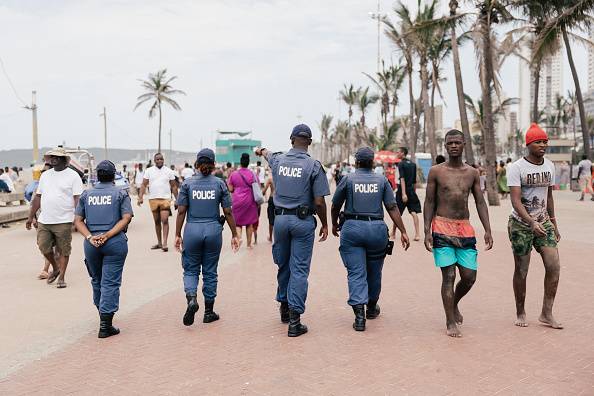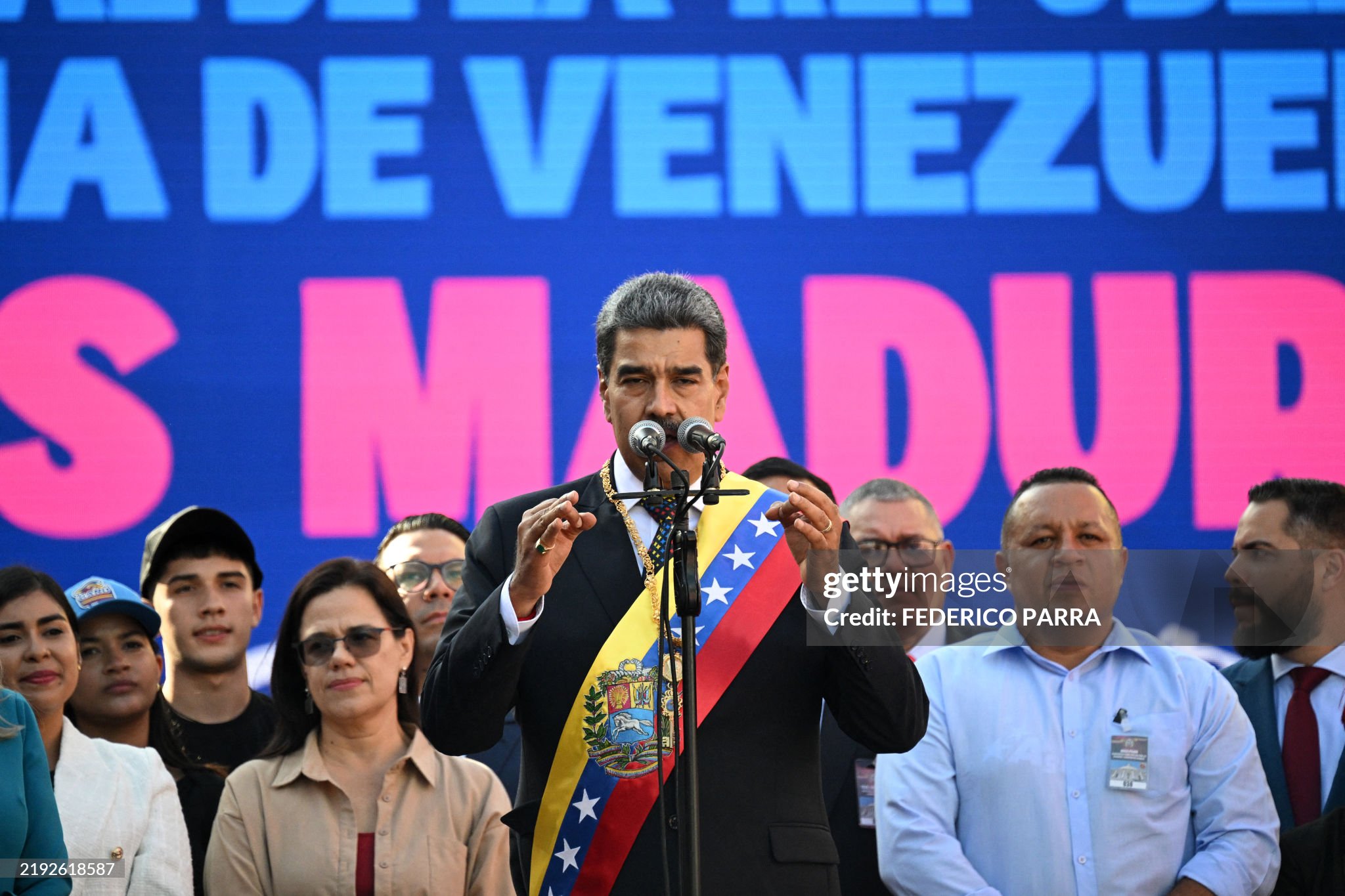‘Integrity is fundamental to what we do. We cannot fight crime when our organisation has within its ranks people who do not respect the law. Crime must be fought with clean hands…
“Another area that I wish to highlight is that of discipline, which is the cornerstone of policing. Without it, there can be no effective policing. This means that each and every officer, from the highest to the lowest rank, must deliver. I will make sure that this happens during my tenure.”
These are the words of former national police commissioner Riah Phiyega in the South African Police Service (SAPS) 2012/13 annual report.
They turned out to be rather hollow because Phiyega’s tenure was cut short and continuous claims of corruption have sullied the police service.
‘It should never have happened’
Phiyega was heading the country’s police on 16 August 2012 when cops killed 34 mine workers in Marikana, North West – one of the worst and most lethal acts attributed to police officers in democratic South Africa.
Annually, the government issues commemoration statements about the massacre.
In 2022, referring to a court ruling relating to Marikana, the Presidency said: “Ten years later our hearts still go out to families who lost their loved ones. The violence and the killings that occurred should have never happened. We are still resolute and united in our condemnation of the brutal acts we witnessed.”
In 2020, government spokesperson Phumla Williams too described the massacre as “an incident that should have never happened”.
Given the government’s stance on Marikana and the number of lives lost, problems in the SAPS should have been urgently analysed, addressed and fixed.
At the very least, to restore the image of the country’s crimefighters.
Instead, the police service ended up embedded with suspected State Capturers and the Marikana horror, which now fits into a much broader landscape of cop scandals.
The police service has also shrunk over the decade.
Based on police annual reports, in the year of the mass killing there were 155,531 officers, while in 2021 there were more than 11,000 fewer – 144,253.
What went wrong
Public order policing was scrutinised following the Marikana deaths.
Reports on the tragedy show that a police commander with proper training and experience in managing crowds should have overseen the operation to deal with the unprotected strike. But a major-general without crowd-management expertise was basically in command, and it was later found that instead of prioritising the protection of lives, cops launched an operation that would likely end in deaths.
And they knew this.
Rubber bullets, tear gas and stun grenades herded strikers towards Tactical Response Team members, who, along with other units, were armed with R5 rifles capable of automatic fire.
On the day of the mass tragedy, 17 strikers were killed at one scene, while another 17 were killed at a second scene where cops were unaware that other cops were approaching from the opposite side – they did not know gunfire coming towards them was likely from their colleagues.
Commission and panel
Following the massacre, then president Jacob Zuma appointed a commission of inquiry, known as the Farlam Commission as it was chaired by retired judge Ian Farlam, to analyse events that led up to it.
The commission’s report was released in 2015 and, according to a police ministry statement that year, called for the “establishment of a panel of experts which must look at exploring ways and means of alternative methods of policing insofar as crowd management and control is concerned”.
A report by the panel of experts, dated May 2018, was released publicly in March 2021. It contained 136 recommendations – 45 of which related to issues including professionalism and accountability, while 91 were about how to deal with protests and crowds.
No accountability
The experts’ report also dealt with broader themes, such as who should be held responsible for the tragedy. It stated: “Lack of accountability permeated the entire Marikana episode.”
In May 2022, Daily Maverick reported that not a single police officer had been charged for the killing of the 34 mine workers.
About three years after the effective mass murder, in October 2015, Phiyega was suspended on full pay, and she completed her term as a police officer in 2017.
Phiyega is now chief executive officer of the Safer South Africa Foundation and a trustee of the SAPS medical aid scheme Polmed.
On its website the Safer South Africa Foundation says it “exists to mobilise underresourced communities to build awareness and ability to work together in the ‘fight against crime’”.
Last week, Daily Maverick contacted the foundation for comment from Phiyega on 10 years having passed since the Marikana massacre.
We were told she was out of the country and would only return in the last week of August. She did not reply to an emailed query sent to the foundation that we asked to be forwarded to her.
The police ministry declined to comment on what had been done – and still needed to be done – in terms of Marikana recommendations, saying that the SAPS would do so first.
The national police did not respond to a Daily Maverick query in time for publication.
Suitable leadership needed
The experts’ report on policing in relation to Marikana also focused on leadership, perhaps because without sound bosses carefully steering the police service, the recommendations to tighten cop operations may be pointless.
For example, the report says: “Professional policing requires the appointment of suitable leadership.” And: “The governance of the SAPS is a critical factor in determining whether the SAPS is able to operate as a professional organisation or not. The Constitution, 1996, provides both the President and the Minister of Police with authority over the SAPS.”
The President may appoint or dismiss a national commissioner, while the minister may give direction to the national police commissioner.
Ever since the Marikana tragedy, though, there have been problematic police leaders. Phiyega aside, four national police bosses have been appointed (two of them in acting capacities) and under each one scandals within the service have simmered and, in some cases, boiled over.

Poor policing and attempted insurrection
Take, for example, former national police commissioner Khehla Sitole.
Sitole and Police Minister Bheki Cele did not see eye to eye.
Under Sitole’s leadership, divisions in the top tiers of the SAPS grew even wider and in July 2021 civil unrest in KwaZulu-Natal and parts of Gauteng broke out after Zuma was temporarily jailed.
The way the country’s security structures dealt with the violence that erupted was an indicator of lessons learnt (or not) from Marikana.
A government statement succinctly summarised the devastation the unrest caused, saying it “wiped billions from the economy and led to 354 deaths”.
President Cyril Ramaphosa previously said an expert panel that analysed the violence had concluded that the government’s handling of it was inept and “police operational planning was poor, there was poor coordination between the state security and intelligence services, and police are not always embedded in the communities they serve”.
His reference to policing being “poor” was similar to what was found about cops’ actions at Marikana.

More public order police
In March 2022, Ramaphosa referred to the Farlam Commission in Parliament, saying it had made many recommendations, several of which had been implemented.
But he said public order policing, “which really, really is hard”, became a focal point owing to the July unrest.
“We never really sort of increased the number of Public Order Police and also, their direct training,” Ramaphosa said. “At that one I think we have said that we have not implemented in full.”
Minister of Defence and Military Veterans Thandi Modise subsequently said an extra 4,000 public order police officers would be added during this financial year.
Back in the cop leadership saga, Sitole vacated the cop boss position at the end of March, ahead of schedule, and Lieutenant-General Fannie Masemola took over.
Cops under investigation over Farmgate
But now Masemola sits with a mess on his hands.
This links to what unfolded on 1 June 2022 when former State Security Agency head Arthur Fraser lodged a criminal complaint against Ramaphosa in a saga now known as Farmgate, relating to a burglary at the President’s game farm in Limpopo in February 2020.
Fraser alleged that Ramaphosa “concealed the crime” – involving the theft of millions of dollars, it was said at the time – from the police and the taxman.
Daily Maverick understands there are suspicions that several senior police officers were aware of the burglary.
Read more in Daily Maverick: “Burglars stole $600,000 from Cyril Ramaphosa’s game farm Phala Phala, says report”
The Independent Police Investigative Directorate subsequently confirmed it “would probe the alleged conduct of the police officers in terms of the SAPS regulation while the Hawks is investigating the criminal element by the SAPS officials which includes amongst others, defeating the ends of justice and kidnapping.”
Rifles and rogues
Meanwhile, the expert panel on policing relating to Marikana flagged another issue: the use of certain firearms during crowd-control operations.
“One of the major reasons for the large number of fatalities at Marikana was the use of high-velocity rifles capable of automatic fire,” the panel’s report said.
“SAPS members of the panel have repeatedly indicated that they fully agree that weapons capable of automatic fire have no place in crowd management and will not be used during crowd management situations. The panel has recommended that this should be taken one step further and that a prohibition against the use of the R5 rifle, and other weapons capable of automatic fire, in crowd management should be formalised in regulations issued by the minister of police.”
Cele previously said the SAPS Amendment Bill, that had been open for public comment between October and November 2021, gave the assurance that no automatic rifles may be used in crowd-control management.
On the flipside of the issue of how police use firearms, is the matter of police colluding with criminals and smuggling guns to them.
Daily Maverick previously reported that while some officers tried to get illegal guns off the streets, firearms meant to be with the police were landing up in the hands of criminals.
This is just another problem that has rattled the police before and after Marikana. DM
This story first appeared in our weekly Daily Maverick 168 newspaper, which is available countrywide for R25.

![]()





















Discussion about this post